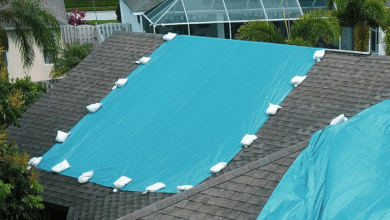
Maintaining your water filtration system is essential to ensuring the quality of your drinking water, particularly in regions where water conditions can greatly affect your health and daily life. This guide offers practical tips to help homeowners maximize the lifespan of their filtration systems while delivering the cleanest, safest water possible.
Regular Filter Replacement
Regularly replacing the filter is essential to maintaining any water filtration system. Over time, filters capture contaminants and particles, but as they become clogged, their efficiency decreases. Keeping your filter fresh ensures clean, reliable water and optimal system performance.
Knowing When to Replace Your Filter
The lifespan of a water filter depends on factors such as its type, your water usage, and the level of contaminants in your water supply. Most manufacturers offer guidelines, with filter replacement typically recommended every three to twelve months. However, if you experience reduced water pressure or notice changes in the taste or odor of your water, it may be necessary to replace the filter earlier than expected.
Cleaning and Inspecting the System
To ensure optimal performance and longevity, it’s essential to regularly clean and inspect your water filtration system. This process includes checking for signs of wear or damage and thoroughly cleaning the components to prevent scaling and clogs. Regular maintenance helps avoid malfunctions and keeps the system running efficiently over time.
Step-by-Step Cleaning Process
- Turn off the water supply: Before starting, ensure that the water supply to the system is turned off.
- Disassemble the unit: Carefully disassemble the parts of the filtration system according to the manufacturer’s instructions.
- Clean the filters and housing: Use a mild detergent and warm water to clean the filter housing. For sediment filters, remove any debris and rinse them thoroughly.
- Inspect for damage: Check for any signs of cracks or wear in the housing and replace any parts as necessary.
Monitoring System Performance
Monitoring your water filtration system’s performance is essential for identifying potential issues early. Signs like reduced water flow, altered taste, or unexpected noises from the system can signal that maintenance or adjustments may be needed.
Tools and Techniques for Monitoring
- Flow meters: Installing a flow meter can help monitor how much water your system is processing, which can indicate when filters are becoming clogged.
- Water quality test kits: Regularly testing the water output with a quality test kit can alert you to changes in the effectiveness of your filter, suggesting it might be time for maintenance or replacement.
Professional Servicing
Complex systems like reverse osmosis filters often require professional servicing to manage their intricate components and ensure optimal performance. This is especially crucial in cases where local contaminants demand specialized expertise and attention.
Benefits of Professional Maintenance
- Expert assessment: A professional can provide a comprehensive check that may reveal hidden issues.
- Warranty preservation: Many manufacturers require professional servicing to keep the warranty valid.
Conclusion
Proper maintenance of your home water filtration system in Salt Lake City is vital to ensuring it operates efficiently and provides your family with clean, safe drinking water. Regular filter replacement is key to preventing contaminant buildup and maintaining optimal performance. Additionally, routine cleaning helps eliminate sediment and residue that can compromise the system’s functionality. Monitoring for signs like reduced water flow or unusual tastes and odors allows you to address potential issues early. Scheduling professional inspections at least once a year is highly recommended, as experts can detect hidden problems and ensure everything is functioning as it should. By staying proactive with these simple steps, you can extend your system’s lifespan and enjoy consistent access to fresh, high-quality water all year long.



